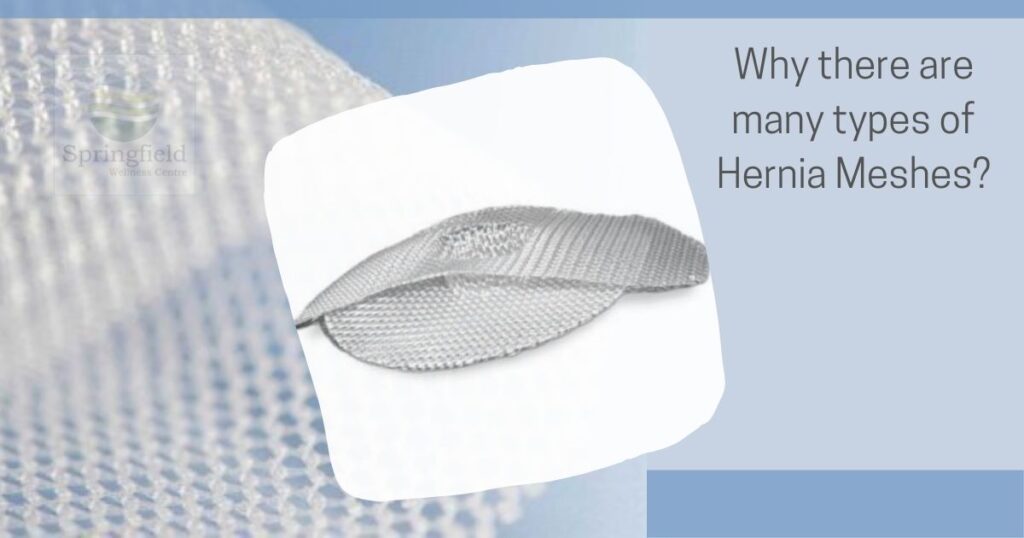Hernia mesh or surgical mesh as it is called helps in closing the hernia apertures. We would have heard of many of our loved ones who have undergone hernia surgery and almost everyone would have found out that the cost of hernia surgery varied from hospital to hospital and one hernia type to another. If we put our thoughts into it, we would have discovered that one of the many factors that supported the variation in cost was the cost of the hernia mesh itself. Why are there so many types of hernia meshes?
More about a Hernia Mesh
Hernia mesh, or surgical mesh, is a medical product that supports closing the hernia defect or hole. As the mesh closes the damaged tissue around hernias, it begins to heal. Hernia surgeons place the mesh across the area surrounding the hernia and attach it with stitches, staples, or glue depending on what is best for the condition. Pores in the mesh allow the tissue to grow into the device and in this way, the hernia meshes helps in closing the hernia and healing.
Why there are so many types of Hernia Meshes?
There are many types of hernias like the Inguinal hernia, Incisional Hernia, Umbilical Hernia, Hiatus Hernia, etc. Every hernia type possesses different challenges in treating them. They also possess challenges with their different shape and form, necessitating the need for different types of hernia meshes to close surgically. Apart from this, another factor called quality also comes into play. Different meshes with qualitative differences are also available. A good surgeon does not compromise on the quality of the hernia mesh being used.
If the patient is young with considerable muscle tone, healthy fascia, and has a simple hernia then a simple hernia mesh might be sufficient. But on the other hand, if the patient has less muscle mass, has thin fascia, has a flabby abdomen, is old in age, has undergone any previous surgery in the abdomen area where the hernia is present currently, then a simple hernia mesh may not be sufficient. Similarly, if a patient is a woman and has undergone pregnancy, has undergone C-section surgery, they might have a flabby abdomen with thin fascia. When a hernia happens to them too, a simple hernia mesh would not suffice.
Another factor that plays a major role is how infected the hernia area is. As a general rule, hernia mesh is avoided in such cases. This is because the probability that the meshes might react and cause problems is high. Therefore, the option of bioabsorbable hernia mesh (a mesh type that is gradually absorbed by the body) is considered if tension repair is not possible.
It is important that the body should not reject the hernia meshes, not adhere to the organs surrounding it, not adhere in such a way that there is constant pain due to constant pulling of the hernia mesh by the organ, or hinder the functions of the organs surrounding it.
Advancements in Hernia Meshes
Over the years the development in medical technologies and a better understanding of the hernia (pathophysiology of hernia) because of the availability of the latest diagnosing techniques, have led to innovations in hernia meshes in the past 2 decades.
Factors that decide the Hernia Mesh Types
- Type of hernia present in the patient
- Presence of infection in the hernia area
- Is the situation emergency or non-emergency
- Whether mesh has to be placed within the skin or inside the abdomen
In a nutshell, the surgeon decides as to which hernia mesh type is suited for each situation. All these factors are carefully considered by the surgeon before selecting the type of hernia mesh that is suitable for the patient.
